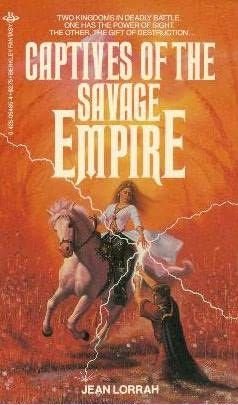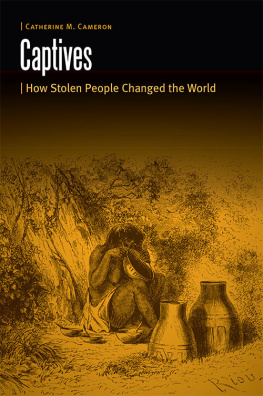Norman Manea - Captives
Here you can read online Norman Manea - Captives full text of the book (entire story) in english for free. Download pdf and epub, get meaning, cover and reviews about this ebook. year: 2014, publisher: New Directions, genre: Prose. Description of the work, (preface) as well as reviews are available. Best literature library LitArk.com created for fans of good reading and offers a wide selection of genres:
Romance novel
Science fiction
Adventure
Detective
Science
History
Home and family
Prose
Art
Politics
Computer
Non-fiction
Religion
Business
Children
Humor
Choose a favorite category and find really read worthwhile books. Enjoy immersion in the world of imagination, feel the emotions of the characters or learn something new for yourself, make an fascinating discovery.
- Book:Captives
- Author:
- Publisher:New Directions
- Genre:
- Year:2014
- Rating:4 / 5
- Favourites:Add to favourites
- Your mark:
- 80
- 1
- 2
- 3
- 4
- 5
Captives: summary, description and annotation
We offer to read an annotation, description, summary or preface (depends on what the author of the book "Captives" wrote himself). If you haven't found the necessary information about the book — write in the comments, we will try to find it.
Captives — read online for free the complete book (whole text) full work
Below is the text of the book, divided by pages. System saving the place of the last page read, allows you to conveniently read the book "Captives" online for free, without having to search again every time where you left off. Put a bookmark, and you can go to the page where you finished reading at any time.
Font size:
Interval:
Bookmark:
Norman Manea
Captives
INSTEAD OF AN INTRODUCTION
Captives is of another place and time. It was published in the Socialist Republic of Romania in 1970, when the provisional so-called liberalization period was still confusing and misleading, and yet often encouraging to many artists and intellectuals. At about that time, unfortunately, Ceauescu visited China and North Korea, where he became fascinated by the enthusiastic obedience of the masses, and upon his return he tried to impose a harsher totalitarian atmosphere back at home. Yet the hedonistic and self-centered nature of the people, as well as external evolution, slowly subverted his nationalistic socialism until its eventual collapse in 1989.
Captives, my first novel, expresses a radical separation from official ideology, drastically departing from all that was heavily promoted and praised by the Party. And although many pages were cut by the censors, it still, by some miracle, appeared in print.
The books three main characters are vulnerable, weak, and defeated individuals: the complete opposites of the heroes and heroines of the systems exemplary novels. Thomas Manns statement in Death in Venice about weakness one might well wonder whether the only possible heroism was the heroism of the weak resonated powerfully with me at that time, in our suffocating impasse. These protagonists, connected through a spiral that weaves through three parts, represent complementary faces of captivity: the quasi-burlesque energy of a frustrated schoolteacher, never tiring of her hunt for new illusions despite their humiliating ends; the sensitive and lonely daughter of a suspected war criminal who has committed suicide; and her young colleague, an engineer who seeing in her the ghost of his lost sister who perished during the Holocaust brutally ends their brief affair. This young engineer, who slowly comes to understand the perversity of this socialist paradise, becomes one of its wounded outsiders, just as the young woman has.
To create this enterprise, I had to find an adequately unconventional and experimental literary form, and so I propelled these characters through spiraling, self-sufficient, minimalist narratives, each one as larval as our own lives spent pushing our ways through a police state of suspicion, reticence, and submission. I was deeply aware of the political and aesthetic risks such a book might pose: the novel offered a multidimensional contrast to the Partys leaderships cosmetic image of the dynamic social progress. The book was a challenge to authority, to myself, and to the reader, but didnt Faulkner say that a writer should be judged by the risks he takes, even if risks are conducive to failure?
Sometimes adopting the heavily descriptive methods of the so-called nouveau roman, Captives also serves as a document of the epoch, depicting the manner in which a self perceives itself in language and is organized by language. How else can anyone escape from the wooden discourse of an ideological system?
The passive voice, so important to understanding the book, is not routine in English, and the novels hermeticism was an imposing constraint, whereby the object of an action is influenced or even changed, without the voice necessarily pointing to a certain subject that has caused the action. The broken characters are subdued, suspected, and distorted by obscure forces.
I strove to push the reader into a kind of implicit solidarity with my characters, through a labyrinth of twisted narratives, still organic to life in an oppressive environment. As usually happens in a suppressed society, the hidden sides of reality are decoded slowly, displaying their meaning only toward the end of the book, where I hope the connections and enigmas open up. Lack of freedom of choice in a country where the State is the only employer, and where citizens are owned by it, endangers any individual refuge. My world here is a kind of Kafkaesque penal colony with additional local ambiguities, corruption, double-talk, and double-dealing.
By now it must be obvious why I have been somewhat reluctant to publish this book here. Already more than twenty years have passed since my friends Barbara Epler and Griselda Ohannessian decided to bring out Captives at the earliest possible convenience of the author, and in the meantime New Directions has remained admirably convinced about the project (or perhaps about the essential and heroic role of a good publisher, ready for difficult books, even in a time when writing and publishing seem quite endangered everywhere in the world).In my newly published twenty-five-volume Collected Works in Romania, I found the opportunity to revisit this novel, making some minor changes and cuts in order to at least partially decode the sometimes overwhelmingly puzzling text, with its allusions and tricks, and its specific blind alleys. I have tried to help todays readers, in the West and even in Romania, to thread the maze of a narrative placed in a closed, totalitarian setting. This English translation follows the second edition of Captives.
Aware of the new risks this book faces, now, in my new country and in this troubled time of ours, I can only be grateful to my consistently supportive publisher, and also to Tynan Kogane, my editor, to my excellent translator, Jean Harris, and to my collaborator Carla Baricz.
Lets also trust the patient reader, our peerless peer, who might discover in these pages a reason to think about the strange topics as well as the curious shapes of such a literary adventure.
NORMAN MANEA
BARD COLLEGE, AUGUST 23, 2014
CAPTIVES
She
LONG, INTERMITTENT THREADS of rain, broken and scattered the delayed perception of rain. His jacket is a soggy bandage for arms and shoulders. The streets meeting at the corner of the building, a likely setting for spectacular revolts to come: the young Christ committed to ironic beggary, deprived of violence, spectacular through the lack of inherent violence in his abandoned gestures his beard grown wild, disheveled hair covering his neck and ears, the long, gathered curls lightened by gracious, sky-blue flowers defiant in the confusion of a new day.
He stands on the street corner motionless under the rain and the scrutiny of so many eyes struck by his bizarre appearance, and his arms are as inert as his gaze, which begs for the solidarity of a smile, a flower, some signal of affirmation, or simply, yet more incredibly for physical violence, curses, or reprimands for his uncut hair, dirty beard, and limp body exhausted under the rain. The vagrant blankly stares at a place in the wall where a void in the bricks forms a crocodile-shaped hole. Some passerby would like to convince him that hes mistaken: its just a trace of lime left by some whitewashers brush, a patch of lime not a hole, by any means.
This wandering son of the earth yearns to be one with the rain, to see once more the lime spot lapped by raindrops; only later, when he had already started to forget, a little old lady beside him would recall: several years ago there really had been a hole in that exact spot on the wall, which they filled at some point. His hands shook. The horror passed through him again. Then the abandoned gaze came back: hands forgotten, mind blank, glad to know nothing, to be certain of nothing, with nothing to retain or possess, nothing but alienation and sleep, far away and alone thats all.
Motionless under the rain. Carved onto the street corner like a filthy inscription, with a beard and long hair, indifferent to the ironic looks and insults of all the brave and decent citizens around, spending long hours under the rain, withdrawn, somnolent, in everyones way: this signified more than the single, unwieldy, stammered, unsuitable phrase cast into the void of the office that hed just left: I cant stand typewriters anymore.
Font size:
Interval:
Bookmark:
Similar books «Captives»
Look at similar books to Captives. We have selected literature similar in name and meaning in the hope of providing readers with more options to find new, interesting, not yet read works.
Discussion, reviews of the book Captives and just readers' own opinions. Leave your comments, write what you think about the work, its meaning or the main characters. Specify what exactly you liked and what you didn't like, and why you think so.















